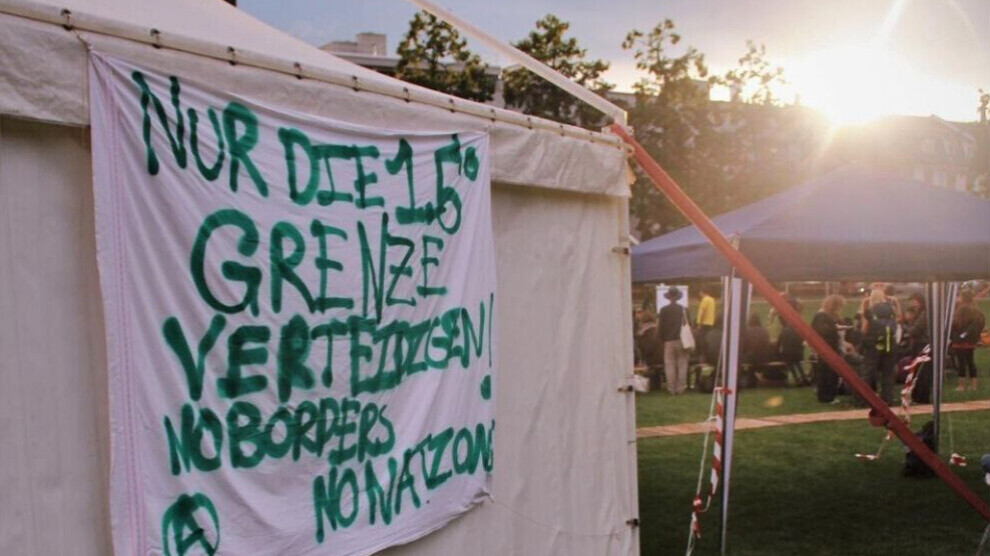Kurdish issue discussed at No Borders Climacamp in Basel
Özen Aytaç from the women's association YJK-S spoke at the No Borders Climacamp in Basel about the Kurdish freedom movement's understanding of ecology.
Özen Aytaç from the women's association YJK-S spoke at the No Borders Climacamp in Basel about the Kurdish freedom movement's understanding of ecology.

Özen Aytaç from the women's association YJK-S spoke at the No Borders Climacamp in Basel about the Kurdish freedom movement's understanding of ecology.
The No Borders Climate Camp is taking place on the Voltamatte in Basel from August 3rd to 13th, 2023. The focus of the camp is the connection between climate justice and migration struggles. In addition to various inputs and workshops, the climate camp offers the opportunity to exchange content and network.
The organizers said: “The Global North and corporations benefit from the exploitation of people and ecosystems and fuel the climate crisis. The consequences of this are increasing environmental disasters and conflicts, which are forcing millions of people to flee. Countless people die trying to escape. Surviving migrants usually expect misanthropic asylum processes and structural isolation. The camp stands for climate justice and freedom of movement for everyone."
On Saturday, the perspectives of those directly affected by the climate crisis and the migration regime are to be taken to the streets with a "March against Borders".
The Kurdish women's association YJK-S is also taking part in the camp organized by the Swiss climate strike. The activist Özen Aytaç gave a lecture at a workshop followed by a discussion on the Kurdish freedom movement’s understanding of ecology, the reasons for Kurds to flee in the last hundred years and the ecocide and massacres in Kurdistan.
In her presentation, Aytaç explained that the Turkish state commits crimes against people and nature and discussed the situation in Rojava and the chemical weapons used by the Turkish army. As a solution to the problems that have arisen in capitalist modernity, the Kurdish activist presented Abdullah Öcalan’s model of “democratic confederalism” with its three pillars of women’s liberation, grassroots democracy and ecology and said: “We want to show that another world is possible. That is our common task for our future.”